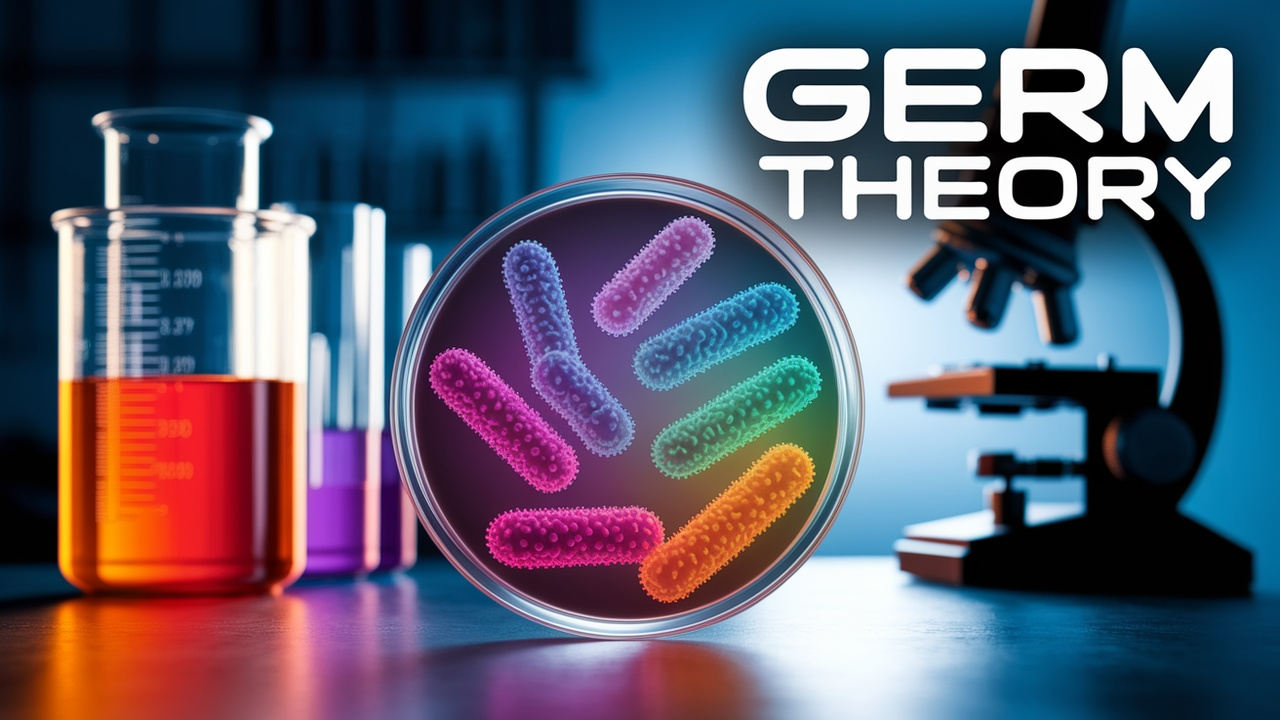
This course explores the groundbreaking work of Louis Pasteur and the development of the Germ Theory of Disease. Through a structured approach, students will learn about the historical context, scientific discoveries, and the impact of Pasteur's work on modern medicine and public health.
Course Levels
-
Level 1: Introduction to Louis Pasteur
In this introductory level, students will familiarize themselves with the life and contributions of Louis Pasteur.
-
Level 2: Understanding Microorganisms
This level covers the basic concepts of microbiology and the role of microorganisms in health and disease.
-
Level 3: The Development of Germ Theory
Students will explore the formulation of the Germ Theory and its implications for disease understanding.
-
Level 4: Pasteur's Major Contributions
This level delves deeper into Pasteur's significant contributions and experiments that shaped the Germ Theory.
-
Level 5: Impact on Medicine and Public Health
Students will analyze how Pasteur's work influenced medical practices and public health policies.
-
Level 6: Critiques and Controversies
This level addresses the critiques and controversies surrounding the Germ Theory and Pasteur's work.
-
Level 7: Legacy of Louis Pasteur
Students will explore the lasting legacy of Pasteur’s contributions to science and society.
-
Level 8: Case Studies in Germ Theory Applications
This advanced level examines real-world applications of the Germ Theory in various health crises.
-
Level 9: Future Directions in Microbiology
This final level looks at the future of microbiology and the ongoing relevance of Pasteur’s discoveries.
Course Topics
-
Antibiotic Resistance
# Antibiotic Resistance Antibiotic resistance is a significant global health issue where bacteria evolve to resist the effects of medications that once killed them or inhibited their growth. This phe...
-
Introduction to Microbiology
# Introduction to Microbiology Microbiology is the study of microorganisms, which are microscopic entities that can be unicellular, multicellular, or acellular. This field encompasses a variety of or...
-
The Role of Germ Theory in the Fight Against Infectious Diseases
# The Role of Germ Theory in the Fight Against Infectious Diseases ## Introduction Germ Theory, which was developed in the late 19th century, fundamentally changed our understanding of infectious dis...
-
Influence on Future Research
# Influence on Future Research ## Introduction Louis Pasteur's groundbreaking work in microbiology and the formulation of the germ theory of disease have had a profound and lasting impact on the fiel...
-
Case Study: Cholera Epidemics
# Case Study: Cholera Epidemics ## Introduction Cholera is an infectious disease caused by the bacterium *Vibrio cholerae*. It primarily spreads through contaminated water, leading to severe diarrhea...
-
Pasteur vs. Koch
# Pasteur vs. Koch ## Introduction The late 19th century was a pivotal time in the establishment of microbiology and the understanding of infectious diseases. Two prominent figures, Louis Pasteur and...
-
World Health Organization Initiatives
# World Health Organization Initiatives The World Health Organization (WHO) plays a pivotal role in global public health, influencing policies and initiatives that aim to combat diseases and improve ...
-
Recognition and Honors
# Recognition and Honors Louis Pasteur, renowned for his groundbreaking contributions to microbiology and medicine, received numerous accolades and honors throughout his life, reflecting his monument...
-
Initial Discoveries
# Initial Discoveries Louis Pasteur is often regarded as the father of microbiology, and his initial discoveries laid the groundwork for our understanding of germs and their role in disease. This sec...
-
Emerging Infectious Diseases
# Emerging Infectious Diseases Emerging infectious diseases (EIDs) are defined as newly identified or previously unrecognized infections that have either recently appeared in a population or have exi...
-
Public Health Context in 19th Century
# Public Health Context in 19th Century The 19th century was a pivotal period for public health, characterized by rapid industrialization, urbanization, and significant advancements in medical scienc...
-
Modern Perspectives on Germ Theory
# Modern Perspectives on Germ Theory Germ theory, established in the late 19th century, transformed our understanding of disease causation. While Louis Pasteur and Robert Koch laid the groundwork, mo...
-
Synthetic Biology and Biotechnology
# Synthetic Biology and Biotechnology Synthetic biology is an interdisciplinary field that combines principles from engineering, biology, and computer science to design and construct new biological p...
-
Reactions to Germ Theory
# Reactions to Germ Theory The introduction of Germ Theory in the 19th century by scientists such as Louis Pasteur and Robert Koch revolutionized the understanding of infectious diseases. This topic ...
-
Hygiene Practices in Hospitals
# Hygiene Practices in Hospitals Hygiene practices in hospitals are critical in preventing healthcare-associated infections (HAIs) and ensuring patient safety. Understanding these practices is essent...
-
Early Life and Education
# Early Life and Education of Louis Pasteur Louis Pasteur, one of the most influential figures in microbiology, was born on December 27, 1822, in Dole, France. Understanding his early life and educat...
-
Career Beginnings
# Career Beginnings ## Introduction to Louis Pasteur's Early Life Louis Pasteur was born on December 27, 1822, in Dole, France. He grew up in a modest family where his father was a tanner. From an ea...
-
Case Study: The 1918 Influenza Pandemic
# Case Study: The 1918 Influenza Pandemic ## Introduction The 1918 influenza pandemic, often referred to as the Spanish Flu, was one of the deadliest pandemics in human history, infecting approximate...
-
Microbial Life Cycle
# Microbial Life Cycle Understanding the microbial life cycle is crucial for grasping how microorganisms thrive, reproduce, and interact with their environments. Microbes, including bacteria, fungi, ...
-
Vaccination Programs
# Vaccination Programs Vaccination programs are critical components of public health strategies aimed at controlling and preventing infectious diseases. They leverage the principles of immunology to ...
- And 16 more topics...